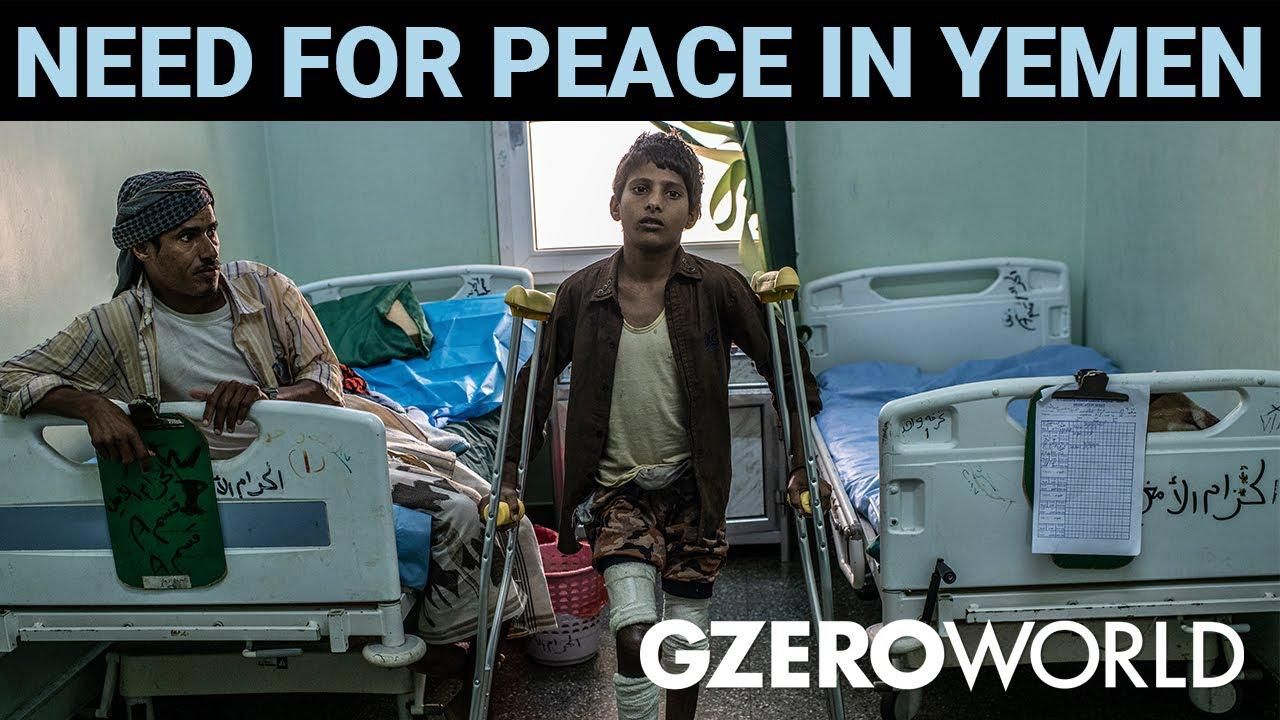GZERO World with Ian Bremmer
Caught in the crossfire: Yemen’s forgotten war

| GZERO World with Ian Bremmer

In Yemen, the world’s biggest humanitarian crisis you’ve probably never heard of, 80 percent of people need international aid just to survive. Two-thirds are hungry, and half don’t know where their next meal will come from.
Life is very hard in Yemen, UN Resident Coordinator David Gressly tells Ian Bremmer. Most infrastructure is destroyed, few can access clean water or health care, and many Yemenis are afraid to go outside because of landmines.
Meanwhile, 1.2 million civil servants continue to show up to work, with little or no pay. If they stayed home, the state would cease to exist.
The UN is asking for $3.6 billion simply to feed Yemenis and keep the lights on through 2022, but is now short $1.6 billion. Gressly says that means many Yemenis will go hungry next year.
Regional powers Iran and Saudi Arabia have turned Yemen into a seven-year proxy war, with civilians paying the price. The country is divided between the Houthis, an Iran-backed Shia militant group, and the internationally recognized government with Saudi Arabia on its side.
It’s unlikely the conflict will end anytime soon. The Biden administration has delisted the Houthis as a terrorist organization and stopped selling weapons to the Saudis. Gressly thinks that’s a step in the right direction, but not enough.
Meanwhile, in New York City: Yemeni coffee! Did you know that war-torn Yemen still produces one of the tastiest coffees in the world? It’s hard to get the beans now, but Diwan Café in Brooklyn has found a way.
In this Quick Take, Ian Bremmer addresses the killing of Alex Pretti at a protest in Minneapolis, calling it “a tipping point” in America’s increasingly volatile politics.
Who decides the boundaries for artificial intelligence, and how do governments ensure public trust? Speaking at the 2026 World Economic Forum in Davos, Arancha González Laya, Dean of the Paris School of International Affairs and former Foreign Minister of Spain, emphasized the importance of clear regulations to maintain trust in technology.
Will AI change the balance of power in the world? At the 2026 World Economic Forum in Davos, Ian Bremmer addresses how artificial intelligence could redefine global politics, human behavior, and societal stability.
Ian Bremmer sits down with Finland’s President Alexander Stubb and the IMF’s Kristalina Georgieva on the sidelines of the World Economic Forum to discuss President Trump’s Greenland threats, the state of the global economy, and the future of the transatlantic relationship.